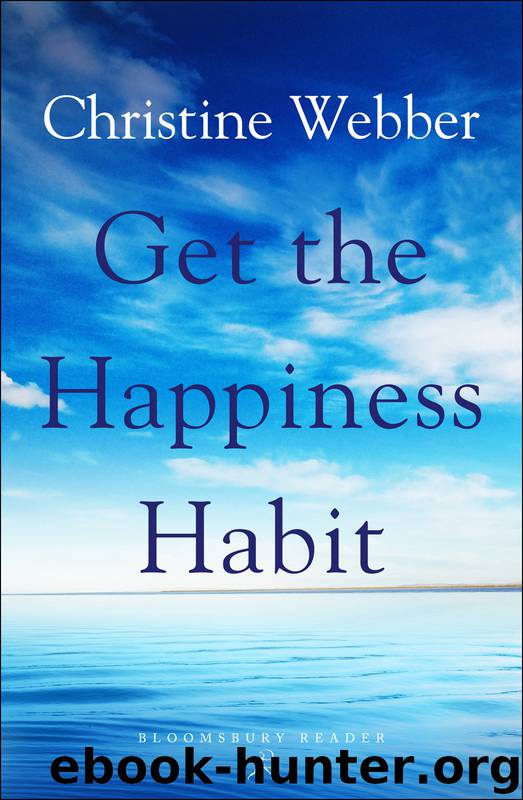Get the Happiness Habit by Christine Webber

Author:Christine Webber
Language: eng
Format: epub
Publisher: Bloomsbury Publishing
Published: 2015-04-15T04:00:00+00:00
Chapter Seven
Challenging Irrational Thinking
I bet that when you were a child, you used to worry yourself with irrational thoughts, such as: If I tread on the cracks of the pavement, I’ll die. Or: If two more buses pass before I get to school, Dad won’t buy me the bike I want.
Undoubtedly, your irrational thoughts have changed over the years, but I expect you still have some. We all do. But many of these thoughts contribute to our feelings of unhappiness. So, if we are to build a happiness habit, we need to challenge unhelpful and irrational thoughts – and to ask ourselves if they are actually true. Often they are not.
People used to think that our thoughts arise as a result of the emotions we feel. In fact, the opposite is true: our thoughts create our emotions.
Shakespeare – along with his very many and obvious other talents – could have been a psychologist, had there been such a profession in the sixteenth century. His grasp of human nature, and of how we think, was astonishing.
There are plenty of brilliant quotes which illustrate his insight, but here’s one of the best, spoken in Hamlet by the eponymous heroin Act II, scene II, line 259: ‘…there is nothing either good or bad, but thinking makes it so …’
Milton also understood the human psyche. In Book One of Paradise Lost he wrote:
‘The mind is its own place, and in itself
Can make a Heav’n of Hell, A Hell of Heav’n.’
I have already mentioned the Stoic philosophers in Chapter Three, and the quote attributed to Epictetus: ‘It’s not things that upset us, it’s our view of things.’
This is such a true observation. Please remember it, as it’s very useful for people who are trying to prevent their thoughts from propelling them down an unhelpful and unhappy path.
The point really is this: we tend to assume that events, or other people, cause our moods. But clearly Epictetus, Shakespeare and Milton knew that, in most situations, it is our own thoughts which make the biggest contribution to our emotions.
Common Irrational Thoughts
Most of us have recurring thoughts which are irrational and/or untrue, but which act like an inner commentary that adversely affects our emotions.
Here are some common ones:
• I’m hopeless
• I can’t do this
• Everyone else is cleverer than me
• I’m bound to fail
• I’m stupid
• I’m unlikeable
• I’m horrible
Download
This site does not store any files on its server. We only index and link to content provided by other sites. Please contact the content providers to delete copyright contents if any and email us, we'll remove relevant links or contents immediately.
The Four Agreements by Don Miguel Ruiz(6763)
Flow by Mihaly Csikszentmihalyi(4697)
The Four Tendencies by Gretchen Rubin(4600)
Adulting by Kelly Williams Brown(4574)
You Do You by Sarah Knight(4467)
The Hacking of the American Mind by Robert H. Lustig(4381)
Ikigai by Héctor García & Francesc Miralles(4273)
Right Here, Right Now by Georgia Beers(4211)
A Simplified Life by Emily Ley(4161)
The Art of Happiness by The Dalai Lama(4130)
The Power of Positive Thinking by Norman Vincent Peale(4064)
The Little Book of Hygge by Meik Wiking(3693)
The French Women Don't Get Fat Cookbook by Mireille Guiliano(3661)
The Heroin Diaries by Nikki Sixx(3548)
The Courage to Be Disliked by Ichiro Kishimi & Fumitake Koga(3503)
The Choice by Edith Eva Eger(3468)
Why Buddhism is True by Robert Wright(3451)
Spark Joy by Marie Kondo(3302)
Make Your Bed by William H. Mcraven(3179)
